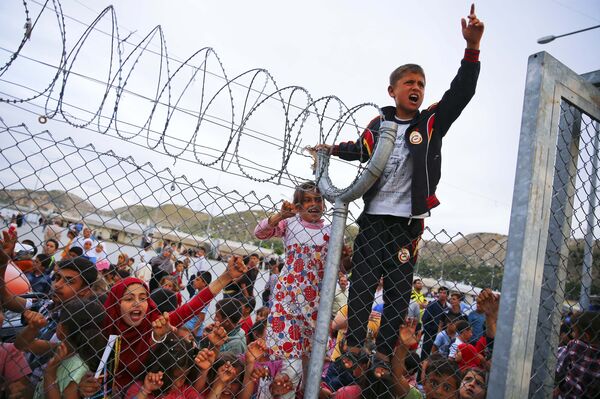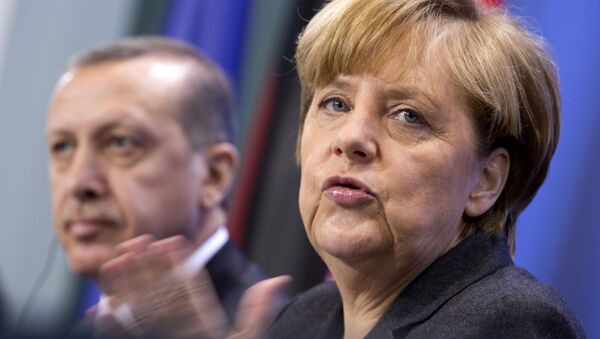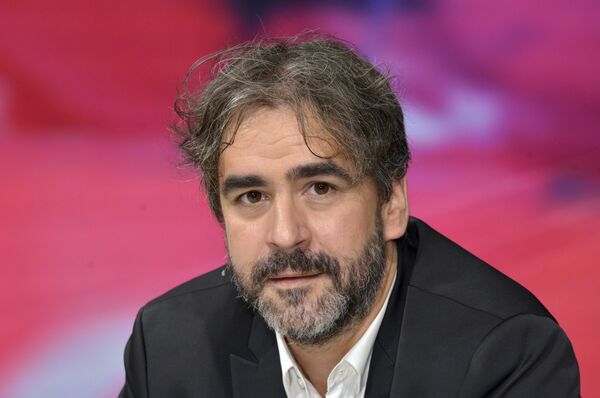A string of rallies over the referendum in Germany have been cancelled — ostensibly for security reasons — bringing accusations from Turkey that Germany is attempting to interfere with Turkish democracy. Erdogan accused Germany of using "Nazi tactics" to prevent the rallies.
"It cannot be justified. Nazi comparisons only lead to misery. This needs to stop," Merkel said in a speech to the Bundestag, March 9.
Merkel is already under fire throughout Europe over the controversial EU-Turkey migrant deal, of which she was the mastermind and which allows for "irregular migrants" — those refused asylum in Greece — to be sent back to Turkey, in return — on a one-for-one basis — for Syrian refugees in Turkey being relocated to EU member states.

However, the plan has hit trouble because several member states — notably Hungary and Poland — have refused to accept mandatory relocation of migrants and there is rising opposition to the scheme because of human rights issues with Turkey.
Journalist Arrest
Relations between the two countries deteriorated further after the arrest of Deniz Yücel, a German-Turkish journalist working for 'Die Welt' newspaper. He has been detained on charges of supporting a terrorist organization and inciting public violence.
He is one of six German citizens detained in the crackdown on followers of exiled Turkish cleric Fethullah Gulen, now living in the US, who Erdogan blames for being behind the failed coup, July 2016. German Chancellor Angela Merkel has demanded the release of Yucel amid growing calls for her government to block a planned visit to Germany by Erdogan over the case.
The EU-Turkey deal is also contingent on Turkey's accession to the EU being accelerated, but there is growing opposition over what is being seen as a power-grab by Erdogan and a clampdown on opposition, the media and freedom of speech. However, Merkel said it was important to maintain dialogue with Ankara, despite the differences.
"Without such agreements, we would have to accept illegal migration, which would not help anyone," she said, admitting that relations between the two countries are "difficult but important."
President Tayyip Erdogan's spokesman said, March 9, that some European countries were working for the rejection of constitutional changes in Turkey's April's referendum and voiced concern about what it called rising Islamophobia and racism in Europe.



